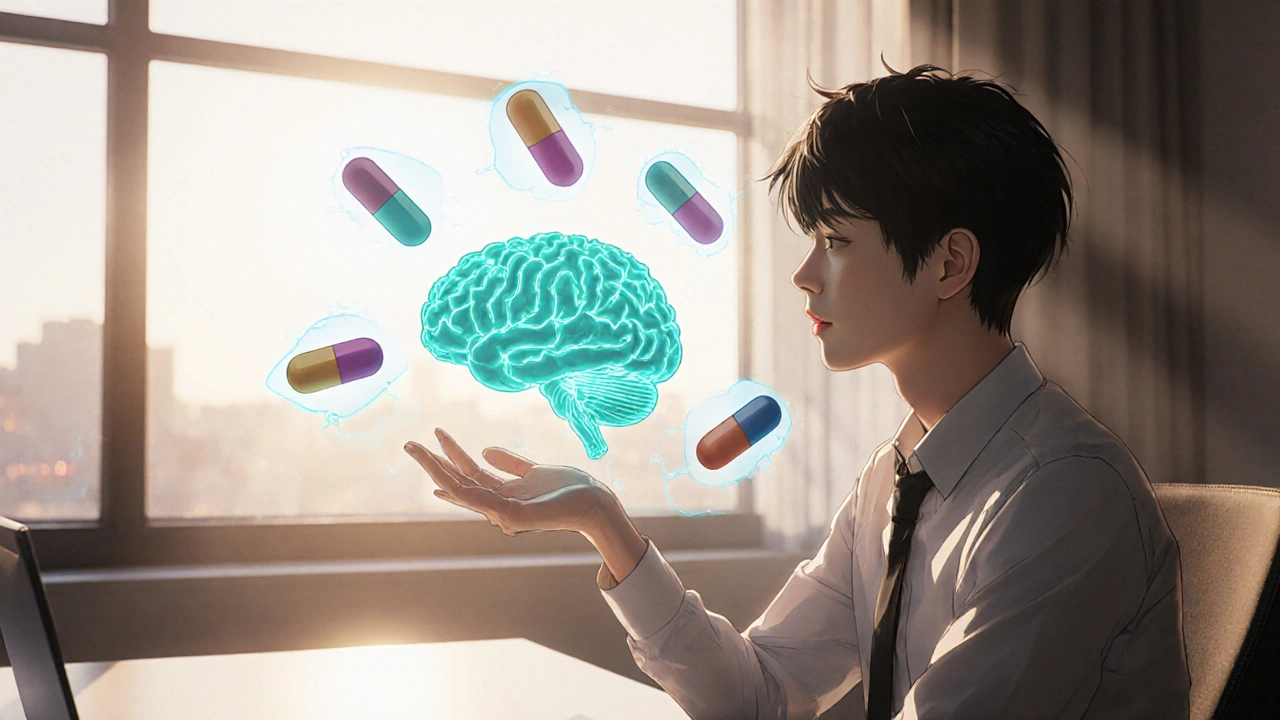
Antidepressant Alternatives: Natural and Prescription Options That Work
When antidepressant alternatives, options that help manage depression without relying on traditional SSRIs or SNRIs. Also known as non-pharmaceutical depression treatments, these approaches include lifestyle changes, supplements, therapy, and other medications that target mood differently than standard antidepressants. Many people try them because side effects from SSRIs like Lexapro or Paxil—weight gain, low libido, brain fog—can be hard to live with. Others want to avoid pills altogether. The good news? There are effective paths forward that don’t start with a prescription for fluoxetine.
One major category of natural depression treatment, evidence-backed methods like exercise, light therapy, and dietary supplements that support brain chemistry includes regular physical activity. Studies show that 30 minutes of brisk walking five times a week can match the effects of some antidepressants for mild to moderate depression. Then there’s vitamin D—low levels are strongly linked to low mood, and correcting a deficiency often lifts spirits without a single pill. Omega-3s from fish oil, St. John’s wort, and magnesium have also shown real results in clinical trials. These aren’t magic fixes, but they’re tools that work when used consistently.
On the prescription side, SSRI alternatives, medications that affect mood through different brain pathways than serotonin reuptake inhibitors include drugs like bupropion (Wellbutrin), which targets dopamine and norepinephrine instead of serotonin. It’s often chosen for people who struggle with sexual side effects or weight gain. Mirtazapine helps with sleep and appetite, making it useful for those who lose both due to depression. Even low-dose antipsychotics like aripiprazole (Abilify) are sometimes added to existing regimens when standard antidepressants fall short. These aren’t "cures," but they offer different ways to reset brain chemistry when the usual options don’t fit.
What ties all these together? It’s not about replacing one pill with another—it’s about finding what your body and mind actually need. Some people respond better to movement than medication. Others need a combo of therapy and a supplement like 5-HTP. The key is knowing your triggers: is it stress? Poor sleep? Nutrient gaps? Chronic inflammation? The posts below dig into real cases, comparisons, and practical steps you can take. You’ll find guides on buying generic versions of mood-supporting meds safely, how stress management reduces physical symptoms like sores and muscle spasms, and how vitamin deficiencies can mimic depression. There’s also info on how drugs like gabapentin and cyclosporine, though not meant for depression, sometimes help when nerve pain or immune issues are part of the picture. No fluff. No hype. Just what works, what doesn’t, and how to get there without wasting time or money.

